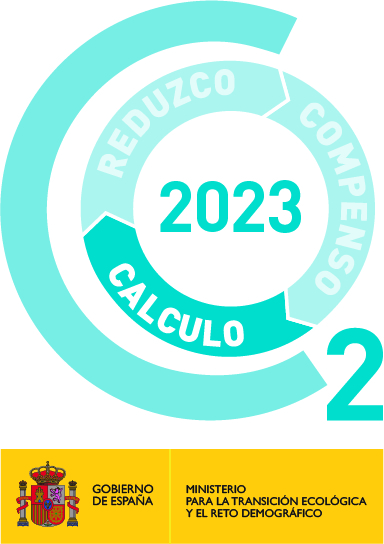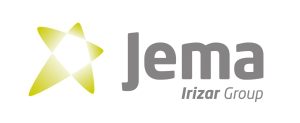JEMA provides technical solutions and a high degree of personalisation for the most demanding projects, which very few companies can offer, explains Ibon Cerro.

JEMA’s main business is developing personalised power electronics solutions in the energy sphere with a highly personalised environment that very few companies can provide, explains Ibon Cerro, manager of the technical area of the company located in Lasarte-Oria, Gipuzkoa. This market requires JEMA to engage in “the constant development and innovation of our products”, with more than 50 highly qualified people assigned to R&D.
What are JEMA’s main business areas?
We have four key areas. One tackles renewable energies, especially solar. Another one is the critical energy supply system that cannot be exposed to the risk of incidents that happen in a conventional electrical grid, like hospitals, data centres or nuclear power plants. The third area is the Irizar Group and Irizar e-mobility buses and developing all the equipment installed in electric vehicles(chargers, energy storage, auxiliary converters for activating steering, drive systems and communications, etc.). We also have another line that demands greater development on our part and that benefits other business areas. We call it advanced energy supply. In this last area, every project is a world unto itself and requires constant innovation.
How makes JEMA stand out in that last area?
We’re one of the top three European companies in the nuclear fusion market. JEMA collaborates with the international scientific community, in particular, on research into obtaining clean and endless atomic energy.
In addition to public bodies, the main international private companies that are highly interested in pursuing these technologies also put their trust in us. In this area, we’re European leaders in high current power supplies for magnetic confinement normal or superconductor coils and high voltage power supplies for plasma heating.
Are you ahead of the competition in this area?
Clearly, we’re a point of reference in the sector. We’ve been lucky enough to be one of three European companies that have developed the most projects in the last 15 years. Those companies are also the most important from the technical and economic point of view. We’ve gained a lot of international recognition and outside Europe we have important businesses in the US and Japan.
What important projects is JEMA working on right now?
We currently have projects in different phases; in design or commissioning. We have projects for different nuclear energy agencies in Spain, France, Italy, the UK, US and Japan. These projects have long maturing times, because it’s necessary to design, manufacture and commission the systems because of the complexity and quantity of power sources, which is why they are projects that take years to develop. They are economically significant projects with a high degree of technical risk. We have the capacity to complete them on time and go beyond the expectations specified by the client in their requirements. Right now, our staff is involved in commissioning projects in Japan and the United States. We have rigorously tested devices and we offer clients high aggregate value. At JEMA, we provide cutting edge technology, tested custom projects and a lot of flexibility. The quality and reliability of our devices are what represents us.
What project are you working on in Japan?
Japan is the end client. The country is working on nuclear fusion and needs twelve power supplies. To achieve this, two projects were completed. One project was for seven power sources whose tender was launched by the Italian national agency and the other was for five power supplies launched by the French agency. We were awarded both tenders separately.
What does it take to have this knowledge available for the client’s benefit?
At a technical level, we always have to change and constantly innovate because what they ask us for always makes us have to take a step forward. As important as designing the power components is developing the controls, which is the smart unit that makes the entire power unit work properly and precisely and provides the needed safety and protection systems. At JEMA, we design and develop these control systems in their entirety. They are extensively tested and robust systems that are also highly flexible so they can be adapted to different needs clients have for their projects, or for different sectors.
Is this quality one of your key values?
Yes. We’re currently starting to implement a very important solar project in Chile. When the client came here to do a technical evaluation of the solution, they praised our highly advanced and innovative control system. It’s one of the strong points they saw in comparison with our competitors, who may be using developments that have been static for the last few years. They were very surprised by our capacity for staying up to date.
To what extent do you collaborate with Creatio, the Irizar Group Research and Development Centre?
JEMA works in the field of electric mobility with different research centres like Tecnalia and Cidetec in the Basque Country Fraunhofer in Germany and also with major international engineering firms. With Creatio, the research and development centre of the Irizar Group (which we belong to), we collaborate via the several working groups we are a member of. The JEMA R&D department collaborates with the Creatio working groups. We’re involved in the project for the new range of interoperable chargers for buses. There are people with more than 15-20 years of experience working on developing these new technologies that are absolutely essential in our sector for the coming years.
What value does JEMA provide its clients?
We provide clients integral control solutions. We provide the hardware platform in addition to the entire software package, which we develop internally. Furthermore, clients can rest assured that we have the flexibility, adaptability and in house knowledge to tackle any changes that may arise during the project. Clients are aware that we can provide any modification within the physical range the devices can provide and that we will do it using innovative solutions. What they value about us is our extensive knowledge and experience and our capacity for providing innovative and personalised solutions for every problem with cutting edge technology and maximum reliability. In the field of electric mobility, we’re recognised for our 20 years of experience.
What is JEMA’s annual investment in R&D?
Around 10% of sales: Right now, we’re in a period of very strong development in the field of solar energy storage. We’re producing new devices and, in the field of trainers, both traditional and electric, with a lot of development, large investments, test benches, tests… We’re consolidating projects we’ve already launched and we’re developing new products to prepare the second range of buses.
What challenges does JEMA face for the future?
One challenge is to keep developing some electronic control components for different companies in the Irizar Group and move version 2.0 of the electric bus family forward, which we want more and more to integrate more devices designed and manufactured within the group in. In more traditional commercial areas, the challenge we’re facing now in the field of renewable energy is to produce a range of devices with higher internal voltage. That’s what they are asking us for, because solar power plant solutions are becoming more and more profitable.
We’re developing transversal knowledge about electronics and control that can be applied in the transport sector or any other of our commercial areas.


